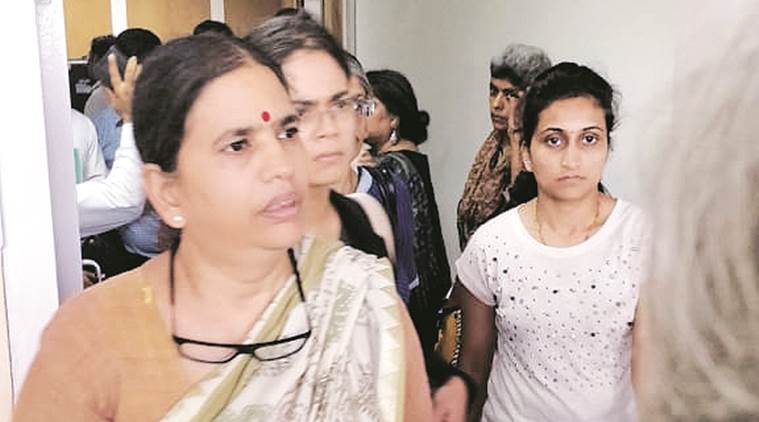 Bharadwaj played a big role in unionising workers in areas such as Dallirajhara and Bhilai Steel Plant.
Bharadwaj played a big role in unionising workers in areas such as Dallirajhara and Bhilai Steel Plant.
A day after Sudha Bharadwaj’s arrest, there were small, symbolic protests on Wednesday against the police action throughout Chhattisgarh by different groups that have worked with her over the years. There were protests held by union workers of Bhilai Steel Plant, among her lawyer colleagues in Bilaspur, and from people across social organisations in Raipur.
Bharadwaj first came to Chhattisgarh in 1986, two years after she completed a Masters degree in Mathematics from IIT-Kanpur, and was immediately associated with Chhattisgarh Mukti Morcha, which was born out of the Chhattisgarh Mines Shramik Sangh.
Bharadwaj played a big role in unionising workers in areas such as Dallirajhara and Bhilai Steel Plant, leading agitations for implementation of labour laws, fair pay and safe working conditions. Over the years, Bharadwaj worked closely with other organisations in the state that dealt with issues of human rights, mining and displacement such as the Jagdalpur Legal Aid Group, Bastar Solidarity Network, Human Rights Law Network and Chhattisgarh Bachao Andolan.
In 2000, Bharadwaj completed a Law degree from Ravishankar University in Raipur and has since been practising in Chhattisgarh High Court in Bilaspur. In her career as a lawyer, she has fought cases at the National Green Tribunal, labour court, industrial court, district courts, Central Administrative Tribunal, and has appeared before judicial commissions of inquiry.
From 2014 to 2016, she was nominated by the High Court of Chhattisgarh to serve as a member of the State Legal Service Committee. The 57-year-old advocate has intervened in cases ranging from murder of a journalist to rape victims and rights abuse in Bastar to those related to the environment.
In 2015, Bharadwaj filed a writ petition for the family of journalist Umesh Rajput, who was killed in Gariaband in 2011. She sought a CBI probe, which was eventually granted and two arrests were made. In another case, appearing for the family of rape and murder victim Pingla Raj, Bharadwaj’s intervention had made the High Court order a reinvestigation, forcing the police to conduct a forensic test.
Known widely for her work as a human rights lawyer, Bharadwaj has argued for victims of alleged fake encounters and sexual abuse by security forces in Bastar, working closely with the Jagdalpur Legal Aid Group. In November 2017, the National Human Rights Commission (NHRC), which Bharadwaj had petitioned, slammed Chhattisgarh police and Sukma district officials for “turning a blind eye” to the alleged murder of seven people and the burning of homes by “special police officers” of Salwa Judum in 2007. In a sternly worded notice seeking reply from the state government in eight weeks, the NHRC observed that these acts suggested that the state or district administration abetted these crimes.
This had come after NHRC had directed Bharadwaj to collect more information and send a report in April 2017.
Bharadwaj, who has consistently argued that laws such as the UAPA are draconian — which she now finds being used against her — had also challenged the Chhattisgarh Special Public Security Act.